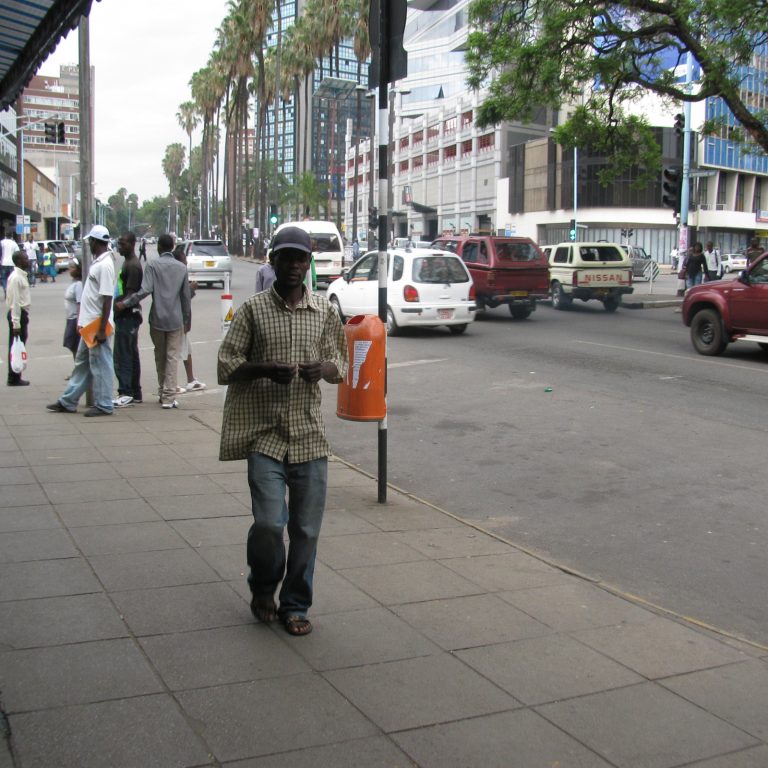Golix Exchange Files Lawsuit Against Reserve Bank of Zimbabwe’s Cryptocurrency Ban
source: Bitcoin News
2018. May. 23. 01:15

On May 13 2018, the Reserve Bank Of Zimbabwe (RBZ) issued guidelines in a circular that detailed cryptocurrency activities taking place within the country are now banned. The RBZ further stated that domestic digital currency operations had sixty days to become compliant. Local reports now reveal the Zimbabwe-based cryptocurrency exchange Golix plans to take the central bank to court for banning digital assets, as the firm emphasizes that the RBZ has no authority to ban cryptocurrencies across the country.
Also read: How Bitcoin Cash Can Avoid the Same Mistakes as Bitcoin Core, Part 4 of 4
Reserve Bank Of Zimbabwe Faces Legal Backlash
Last week cryptocurrency enthusiasts and businesses in Zimbabwe got some bad news as the central bank decided to ban all digital currency activities. The RBZ warned about the ‘risks’ involved with cryptocurrencies and told financial institutions not to deal with digital asset businesses.
The Reserve Bank of Zimbabwe released a circular which effectively banned cryptocurrencies this month.The ban would affect Localbitcoins trades within the region alongside the country’s three exchanges Golix, Bitfinance, and Styx24. News.Bitcoin.com spoke with Golix representative Tawanda Kembo last month when the exchange installed a Bitcoin ATM. Our newsdesk also received an email from the Golix exchange shortly after the ban.
“On Friday, the Reserve Bank of Zimbabwe issued a statement to all banks instructing them to stop providing bank accounts to cryptocurrency companies within the next sixty days,” the Golix exchange explains.
According to the regional publication Zimeye.net, Golix is taking the Reserve Bank of Zimbabwe to the High Courts.This means that unless the central bank changes its position prior to the expiry of the sixty-day window, you will not be able to send or receive fiat currencies for cryptocurrency trades.
Golix Files a Lawsuit Against the RBZ with the High Court
Shortly after the email, the regional publication Zimeye.net reported that Golix was now planning to “slap a lawsuit” against the RBZ for issuing a countrywide cryptocurrency ban. Golix says they are taking the central bank to the High Court and state that the RBZ governor has no experience with managing a local currency giving him no right to ban it. The exchange argues that the central bank has no authority to ban digital currencies and only parliament has the means to make such laws.
”I submit that the ban in effect outlaws and classifies as illegal Applicant’s operations,” a Golix official said to the Zimeye publication.
The respondents are in fact purporting to classify the trade in cryptocurrency as illegal. That will amount to law making, a function that belongs to the legislature and not the respondents. Respondents are thus clandestinely usurping Parliament’s law making powers.
Golix Has Yet to Receive Instructions From Their Bank — Continues Business as Usual
News.Bitcoin.com reached out to Golix for further information on this lawsuit but has yet to hear back from the exchange. According to other reports, even though the RBZ has issued a ban in its circular to banking institutions concerning virtual currencies, Golix is still organizing an initial coin offering (ICO). “Thus far we are yet to receive instructions from our bank as to what will happen, if at all anything. Once we do, we will update,” an official from the Golix exchange detailed.
What do you think about the Golix exchange slapping a lawsuit against the Reserve Bank of Zimbabwe? Let us know your thoughts on this subject in the comments below.
Images via Shutterstock, Pixabay, and Golix.
Need to calculate your bitcoin holdings? Check our tools section.
The post Golix Exchange Files Lawsuit Against Reserve Bank of Zimbabwe’s Cryptocurrency Ban appeared first on Bitcoin News.





